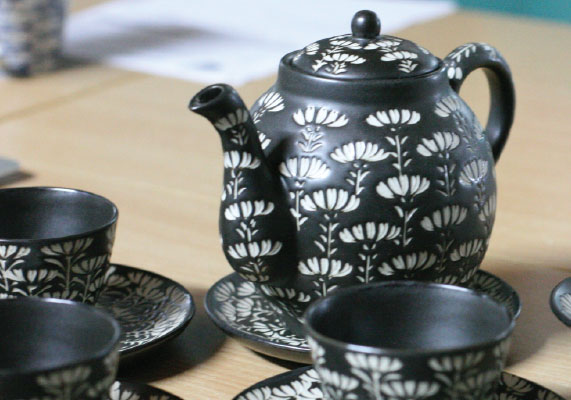About us
NGO initiative
Oriberry is an initiative of the Advancement of Community Empowerment andPartnership (ACEP), a local Vietnamese NGO that works in remote rural areas of Vietnam conducting research and project work that aims to alleviate poverty and create sustainable sources of income through good agricultural practices.
We believe that people should have the opportunities to reach full potentials to undertake actions in the process of making decisions that effect them. Our mission is to empower those who are facing with the problems; to promote collaboration among NGO, governement and business sectors for better participation at all level of society. Through our business activities, we bring opportunities to help producerswork better in the products value chain, create their own brands and link them in to functional networks
Direct trade approach
Oriberry source its high-quality, premium coffee from local and indigenous farmers across Vietnam, working throughout seven provinces and with over ten different ethnic minority groups.
We work with farmers who have a real interest in producing high-quality coffee as well as diversifying their crops with new varieties, which we will buy at a higher price. The coffee produced is grown and processed in line with our code of conduct for good agricultural practice.
Our approach to buying our coffee directly from the farmer is known as Direct Trade. It means we know our farmer’s names, visit their properties and pay a higher price per kilo which goes directly into the farmer’s pocket.We’ve chosen Direct Trade over Fair Trade for several reasons with one being the high fees associated with fair trade certification. While donor funding helped us to achieve UTZ certification in 2009, it’s not a sustainable practice for poor and low capacity farmers. The extra money we pay our farmers for their high-quality coffee goes towards items such as household bills, school books and farming equipment, not expensive certification programs.
Another reason for Direct Trade is some of the smaller farmers we work with are ineligible to apply for Fair Trade certification as they do not belong to a cooperative. We’ve been able to introduce exciting new coffee varieties, such as Typica, into the Vietnamese coffee market by working with these smaller farmers.
Our farmers find it difficult to see the benefits of being Fair Trade certified when the Direct Trade approach we work with cuts out the high fees, paperwork as well as being inclusive to a diverse group of farmers who want to produce high-quality coffee.
We, and others who practice Direct Trade, believe our practices are fair despite not paying for the ‘Fair Trade’ logo for our packaging.
Our Principles
Fair opportunities.
We aware that inequity caused by the difference in number of opportunities people receive in their lives. No matter who the people are, where and in what situation they live, if they are provided proper opportunities, they will not live in poverty. Therefore in every location, we do contract farming with the poor, ethnic minority people. And in every household, we work with both husband and wife.
Traceability
Customers have the right to know the origin of products. Requirements on the traceablity of the project help to increase responsibilties of all actors in the value chain because of the transparence in identification of defects or production weaknesses. Our products are traceable to improve farmers capacity and strengthen producers collaboration.
Good Agriculture Practice (GAP)
Two signification factors in applying GAP are product quality and the way to produce them. Our products are the highest quality products that farmers could produce in a safe and sustainable processing method.
- Soil must be tested.
- Varieties are traceable and legal
- Applying soil and fertilizer management methods
- Applying our trees care and harvesting guidelines.
Follow regulations on labor and environment.
The production performance must be followed social basic principles of ethics. We require our farmers and produces not using child labor. Employees are paid accordingly to agreements and worked in safety environment. Products must be created in the way least harm the future generations. We are not producing materials from deforestration areas or in the way that natural resources lost
Good price and safe price.
We provide two pricing options to the farmers. In the first option, use the local market price as reference and plus at least 20% higher for Oriberry coffee. The second option applied when the market price down. In this case, price would be total production cost plus 10% for farmer profit. We call this as floor price.
Follow safety food/drinks regulations.
All products are examined for free toxic chemical compounds and toxic biological matter. Oriberry production and shops are registered and checked every six months by relevant departments from Department of Agriculture and Rural Development and Department of Health
Involving producers deeper into product value chain.
We aware that farmers are poor because they dont have many work to do. With only about 1ha per family, the farmer will be poor forever if they just planting and sell coffee beans. Our vision is involving them in roasting the beans, creating local brands and joining to coffee and drinks services.


